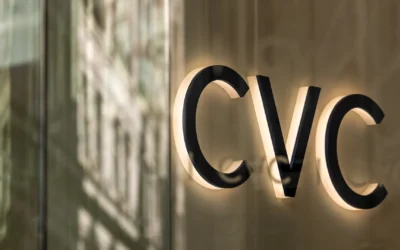The world’s billionaires saw their wealth soar to a record $10.2tn during the coronavirus crisis. But fears over their post-pandemic fortunes are keeping the UK’s richest investors awake at night.
Some of Britain’s wealthiest bankers and hedge fund managers are among those preparing to offload assets over fears the UK government will hike taxes to plug a hole in the country’s Covid-ravaged finances, according to wealth, tax and legal advisers.
Kreston Reeves, a tax and financial advisory firm, has seen enquiries from the UK’s richest nearly triple this year.
“There’s certainly a lot more gifting going on… because there is a fear that inheritance tax could be changed,” said Stephen Metcalf, a private client tax adviser for the firm. Assets are being sold or gifted to younger generations to lock in lower tax hits now, he said.
“Across the whole market… [this activity] could well be into the billions,” he said of the amount of assets being offloaded.
The wealthy are growing increasingly nervous that the government will raise or change the rules around inheritance tax, a levy that must be paid by those inheriting assets of a deceased individual. The tax typically kicks in when an estate is worth £325,000 or more.
Hiking capital gains tax, a levy on the profit made when assets or properties are sold, is also a cause of concern.
The UK’s chancellor Rishi Sunak told the Conservative Party conference on 5 October that tax rises would be introduced to help pay for the cost of the coronavirus crisis. He said that the government could not “simply borrow our way out of any hole” and that there would be “hard choices” ahead. Sunak’s comments followed a series of reports that the Treasury was considering hikes to a range of levies — from capital gains tax and inheritance tax to corporation tax and national insurance.
A Treasury spokesperson said: “We keep all taxes under review.”
Figures from the Office for National Statistics showed that UK debt exceeded £2tn for the first time in history in July, because of the impact of the pandemic. The hit to the public purse came before the UK began its battle to contain a second wave through a fresh bout of lockdowns — which is expected to batter the economy further.
Bryony Cove, a partner in the private client practice at law firm Farrer & Co, said that there had been a 50% increase in client queries regarding the potential for tax hikes in the coming months.
“The number of conversations and the speed with which any planning might be done is definitely on the increase,” she said. “[There] is genuine concern from people.”
Wealth manager London & Capital’s clients, who include hedge fund managers, raised the issue “in every Zoom meeting that we’ve had over the summer”, according to Iain Tait, the head of its private investment office.
Tait, who advises around 100 wealthy individuals with assets totalling around £1.25bn, said clients were “nervous”.
“I think we’re going to see a very dark few months ahead when the temporary sort of Twilight Zone of furloughing becomes the permanent scarring of unemployment. Despite Sunak’s efforts, I think we’ve got a really difficult period ahead,” he said.
Tait added that clients were asking him: “’How are we going to pay for this all?’ Well, it’s going to be [the] wealthy, that’s where the fat on the bone is.”
Some clients of The Private Office, a financial advisory firm for wealthy individuals including investors and investment bankers, are selling assets including investments, shares, unit trusts and buildings in response to such fears, according to the firm’s senior partner Robert Morse.
Morse, who advises clients with a total of £240m in invested assets and around £960m in private assets, said that raising capital gains tax seemed an “obvious target” because currently “it is so low”. For now, those earning more than £50,001 in income are subject to a 28% levy on any profits made on residential property, and a 20% tax on gains made on other assets, such as shares.
“[Clients] are getting on with things that perhaps they’ve put off for quite some time,” he said.
“People are looking at the long-term investment strategy and saying, well, actually, if I was thinking of doing something… maybe this is a sensible time to lock that in and take the hit now,” he said. “The chances of [capital gains tax] being any lower seem really small, the chance of it being higher seem reasonably considerable.”
Metcalf, at Kreston Reeves, said his clients’ interest in gifting assets to younger generations began to increase at the onset of the virus crisis as wealthy individuals sought “to make sure that younger family members had access to assets and income” during the pandemic. But, he said, in recent months clients’ focus had shifted more to planning for the tax rate rises as the virus crisis worsened.
Farrer & Co’s clients were considering passing on assets to younger relatives over worries that the government would not only raise inheritance tax but also remove, or make it significantly harder to qualify for, some of the tax reliefs associated with the levy.
“It’s the reliefs being taken away [that is concerning clients], particularly for business-owning and agricultural-property-owning clients,” Cove said. “[That] gives the government the opportunity to do something subtle that may make them look politically good, but will actually potentially damage a number of businesses.”
Sunak was expected to announce his tax hikes in an autumn budget in November. But he was forced to cancel it in late September after a rise in virus cases in the UK. The chancellor told the LBC London radio station in early October that the next budget should take place “before the end of spring next year”.
Metcalf said his clients’ planning for tax hikes would continue regardless: “There is a serious expectation that rates will have to go up, so any planning that can be done… in the current year, people are still doing that.”
Source: Private Equity News
Can’t stop reading? Read more
Clearlake to buy Pathway Capital in deal that doubles its AUM to $185bn
Clearlake to buy Pathway Capital in deal that doubles its AUM to $185bn Clearlake Capital has...
CVC targets rising LP and GP liquidity demand with new credit secondaries strategy
CVC targets rising LP and GP liquidity demand with new credit secondaries strategy CVC Secondary...
Clessidra enters Italian bakery sector with 70% Laurieri acquisition
Clessidra enters Italian bakery sector with 70% Laurieri acquisition Clessidra Private Equity has...




